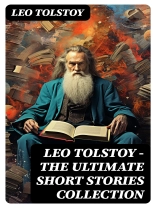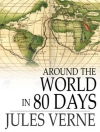Leo Tolstoy’s 'The Ultimate Short Stories Collection’ encapsulates the essence of human experience through a meticulously curated assortment of narratives that range from profound moral dilemmas to intimate glimpses of daily life. Tolstoy’s masterful prose combines realism with deep psychological insight, reflecting the complexities of the human spirit within the socio-political landscape of 19th century Russia. His stories employ a rich narrative style characterized by nuanced character development and a contemplative tone, often exploring themes of faith, morality, and the search for meaning in a tumultuous world. Tolstoy, a towering figure in literary history, was not only a novelist but also a philosopher and moral thinker whose experiences in aristocratic society and later spiritual journey profoundly influenced his writing. His personal struggles with faith, wealth, and ethical living are intricately woven into his stories, providing a lens into both his character and the cultural milieu of his time. Recognized as a pioneer in literary realism, Tolstoy’s work remains relevant, inviting readers to reflect on their own lives amidst the narratives he crafts. This collection is an essential read for anyone interested in literature that transcends mere storytelling. Tolstoy’s short stories invite the reader into a world where the mundane transforms into the extraordinary, offering rich insights that resonate with contemporary audiences. Whether a seasoned reader or new to Tolstoy, this compilation serves as a profound introduction to the complexities of human emotion and the moral questions that continue to challenge us today.
O autorze
Count Lev Nikolayevich Tolstoy, known as Leo Tolstoy, was a preeminent Russian author and a master of realistic fiction, who has left an indelible stamp on literary history. Born to an aristocratic family on September 9, 1828, in Yasnaya Polyana, his literary acumen transcends the boundaries of time, making him an enduring figure in world literature. His aptitude for probing into the deepest layers of the human spirit is evident in his voluminous and insightful works. Tolstoy’s vivid depiction of 19th-century Russian life within his texts provided a mirror through which societal norms could be scrutinized, and personal introspection could be evoked. His 'LEO TOLSTOY – The Ultimate Short Stories Collection’ stands as a testament to his ability to weave complex characters and experiences into poignant narratives that are both accessible and philosophically profound. His narrative prowess is also showcased in his epic novels 'War and Peace’ and 'Anna Karenina’, which intricately dissect themes of war, peace, morality, and family against the backdrop of Russian society. Literature benefited from Tolstoy’s pioneering technique of delving into his characters’ psychological landscapes, a method that has deeply influenced subsequent generations of writers. Tolstoy’s impact extends to moral and religious philosophy as well, as he was a fervent advocate for nonviolent resistance, a stance that later inspired figures like Gandhi. He passed away on November 20, 1910, leaving behind a literary and philosophical legacy that continues to spark dialogue and reflection.












